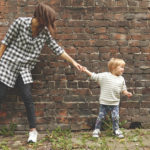24 Mar Why it’s okay to fail
Melissa Cowan comes to terms with her own vulnerability.
“Yeah, she’s sweet, but she can’t teach.”
I was leaving the classroom and heard two of my students talking about me. I was brand new to English language teaching – three months in – and I was struggling. As an introvert, standing up and engaging 15 adult students for five hours a day was an exercise way out of my comfort zone. Most days, I was terrified of getting up in front of a group for such a long period of time. I’d been proud of myself for doing it anyway – until I heard that comment. I planned each lesson meticulously, studied the grammar points for the day and even attended other teachers’ classes on my days off to learn from them. No matter how prepared I was, however, I couldn’t predict the behaviour of my students. If they were tired or upset about something completely unrelated, there was a good chance I’d end up in their line of fire. After the first month of coasting through on pure adrenaline, I was now feeling very challenged.
The student’s comment ate away at me and I started to withdraw in class. My lack of confidence in the classroom made my students uncomfortable and I focused too much on myself instead of on them. I checked in with the head of the school to let her know I wasn’t doing well and the next day was told a couple of students had come to her to express their dissatisfaction. It was the ultimate self-fulfilling prophecy – I believed I was a bad teacher, and so I started to become one.
After a lesson in which a student continued to point out the mistakes I’d made in class, I left in tears. The school would have continued to support me, but I’d had enough. The head teacher said, “I remember beginning teaching as being horrific, too,” but it went over my head. The good feedback I’d received, the progress some of my students made and the high I got after a good lesson were quickly forgotten and replaced with the memories of the tough parts. I truly believed I couldn’t do it anymore, and so it was the end of my very short teaching career. I was unemployed with my tail firmly between my legs, dreading telling people about my failure. The worst part was feeling like I’d let everyone down, including my students.
One day, I stumbled upon Dr Brené Brown’s TED talks on vulnerability and shame. With some solid reflection, I realised my fear in the classroom came down to being scared of being caught imperfect. I was so terrified of being seen as flawed that I ceased to connect. If I’d owned up to making a couple of mistakes, apologised and moved on, it would’ve been better for everyone. I had to come to terms with the fact that vulnerability was not weakness, but rather a measurement of courage. Brené makes a point of saying that it’s not the critic who counts, but rather those people brave enough to put themselves in the arena, facing failure and shame. When they do fail, at least they do so while daring greatly.
I started to talk openly to people I trusted about my teaching ‘failure’ and slowly but surely the shame faded. I began to see that I’d well and truly been ‘in the arena’ by teaching, but made the mistake of taking a spectator’s comment too seriously. I listened to Brené when she said, “If you’re not in the arena getting your ass kicked, I’m not interested in your feedback.”
I was lucky enough to recently see Brené speak at the State Theatre in Sydney. She explored how the stories we tell ourselves (e.g. I’m a bad teacher) are just that – stories. They usually lack data and are pretty inaccurate. Our minds are quick to create what she calls a ‘stormy first draft’, where we leap to unhelpful conclusions. In my case, I told myself that a couple of students’ opinions of me were reflective of everyone else’s. Had I taken the time to examine the other facts and feedback, I would’ve seen that wasn’t true.
I realised my true friends and family cared about one thing only: my wellbeing. They couldn’t care less that I’d failed – if anything they were proud that I’d given it a red-hot go. With time, I picked myself up, dusted myself off and began to rebuild, but it was a much slower process than I would’ve liked. Time spent working at a homewares store gave me the space to reflect on what my strengths were, what I was passionate about and the direction I wanted to move in. A love of words kept springing up; writing and editing were skills that I was simultaneously good at and loved. I did a diploma in Editing and Publishing, interned at a magazine and then landed a great job as a sub-editor and writer. I soon learnt that writing is another way of being ‘in the arena’ and having your innermost thoughts and feelings critiqued by strangers. Done right, it’s a sometimes painful but rewarding exercise in vulnerability.
“If we are brave enough, often enough, we will fall,” says Brené. I can now see that my choice of courage over comfort as a teacher was a brave one. I’m slowly learning to re-frame failure as an inevitable part of living a wholehearted life – if I’m not failing, I’m probably not on the right track. Success, for me, is being courageous enough to get up again and do it all over again.
First published as childmagsblog.com.au




